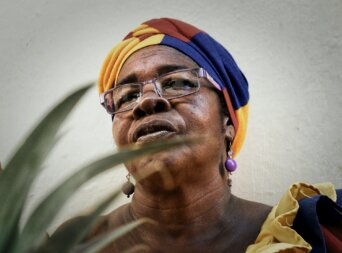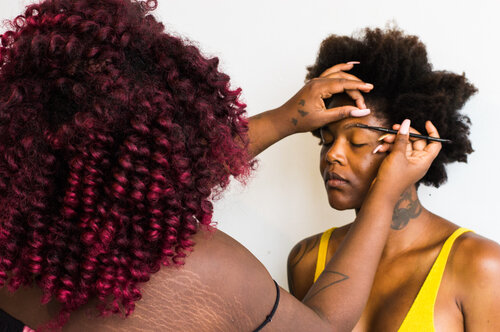- About
- Topics
- Picks
- Audio
- Story
- In-Depth
- Opinion
- News
- Donate
- Signup for our newsletterOur Editors' Best Picks.Send
Read, Debate: Engage.
| topic: | Racism |
|---|---|
| located: | Brazil |
| editor: | Ellen Nemitz |
For decades, Brazil’s carnival has been symbolised by a black woman dancing samba on TV wearing nothing but artistic glitter-paint. Anti-racist and feminist groups challenged the hypersexualisation of women of colour during these festivities a couple of years ago; now, the TV channel responsible for the attraction has decided to discontinue this racist and sexist way of portraying the joyful event. A victory for all women.
Parallel to this, racial equity is each time more evident in official discussions. For the occasion of the 16 days of activism against gender-based violence in November 2022, the Brazilian National Justice Council promoted a campaign focussed on the various layers of violence targeting black women: "Violence occurs even in schools. Racism is committed from an early age, for example, against girls, who are mostly seen as more aggressive and less naive. Add to this whole scenario the hypersexualization of black women," explained the judge Karen Luise Pinheiro.
Indeed, data from different countries of the region show that black women are victims of femicides and violence, represent an extremely low percentage of high-level positions in the labour market and occupy more informal or domestic work positions; moreover, unemployment is higher and the average income is lower among this cohort of the population.
The reason why this reality still persists is a combination of institutional racism and gender inequality, states the executive coordinator of the communication area at the Brazilian Black Women Institute Geledés, Nilza Iraci. This scenario, she assesses, is a consequence of the "lack of access or lower quality access to services and rights by the black population, especially women," contributing to the "perpetuation of a structuring condition of inequality in our society."
The core mission of various groups, collectives and institutions across Latin America is the promotion of black people, especially women, to equal positions in society - in business, politics or arts. Just two of the many examples are the movement Negras que Movem (Black Women that Move), in Brazil, working to "highlight black women who move the structures of the world," and the collective Mizangas, in Uruguay, which promotes afro-women's human rights against all forms of exclusion.
Also remarkable in Brazil are the recent efforts of the Ministry of Racial Equality towards the establishment of national and international partnerships. In bilateral meetings with the US, during which the resumption of the Joint Action Plan to Promote Racial and Ethnic Equality has been discussed, the Minister Anielle Franco emphasised that the country shall return to a highlighted position in the economic, political, and cultural spheres, always strengthening the defence of the rights of the Brazilian people and the black population.
Black voices are now irreversibly raised to rewrite their history. The Afro-Latin American, Afro-Caribbean and Diaspora Women's Network (a collective joined to create a development space to fight against racism, sexism and poverty all over the Americas) celebrated 30 years of activities in November 2022.
In an open letter, those women acknowledged some advances in the pursuit of black people's rights, while making plans for the future: "For the next 10 years we emphasise the struggle to achieve non-negotiable points for the construction of a society centred on living well, a life free of violence, with dignity and justice in a world where we are all equal."
Image by Jeison Higuita

